It may not seem like there’s an artfully honorable way to prepare cattle for consumption, but there certainly is. This kind of nurturing production raises the most elite-quality cattle in the world: Wagyu. “Wagyu” is a Japanese term whose literal translation means “Japanese cow.”
Hence, why is there such a thing called American Wagyu beef? What makes the standards of Wagyu beef different in America than over in Japan? Let’s take a closer look at the differences between Japanese and American Wagyu beef to shed some light on the subject.
Cattle-Raising Techniques and Practices
Premium Wagyu is rooted deeply in the traditional way cattle are raised. The process of producing the highest-quality meat involves raising happy, healthy, and calm cattle. The reduction of the animal’s stress is a trademark of Wagyu-raising in Japan.
Since Japan is an island nation, space is scarce, so cattle are raised in open-air barns, where they’re protected and closely tended to. Cleanliness standards are high, and high-quality feed grants comfort to the cattle. American farms or ranches also typically meet these conditions, but regulations are less strict and more open ended. Production quality truly depends on the particular care and effort of the cattle farmer.
Wagyu Grading Standards
Wagyu doesn’t have many variations in taste and texture, but certain grading standards vary between the countries. Governing grading standards is one of the major differences between Japanese and American Wagyu beef. The American Wagyu Association was founded in 1990. This association’s purpose is to guarantee that the Wagyu specially produced within the USA can match the strict standards developed by the Japanese Meat Grading Association. These standards are precise for overall meat quality and yield, accounting for the beef’s texture, color, marbling, and firmness. In Japan, meat grades are ordained by letters (A–C) and numbers (1–5). The highest grades are labeled as A4 and A5. Comparative to USDA grades, the equivalent top-notch Wagyu in America is labeled as 100% full-blood Wagyu.
The Future of American Wagyu
Based on the above standards, there’s an incredibly low number of true Wagyu cattle in America. Beef labeled as “Wagyu” or “Kobe” is often actually a cross-bred version. Cross-bred Wagyu cattle may produce meat that resembles real Wagyu, but the characteristics will be less superior to genuine, full-blood Wagyu.
Here at Lone Mountain Wagyu, we have all the Wagyu you’ll ever need to live life to the fullest. Our full-blood Wagyu beef is a high-quality American product that’s 100 percent native Wagyu—no cross-breeding is involved. Wagyu lineage may be a swirling black hole, but we can assure you that our carefully bred cattle come from Japanese heritage, which gives our Wagyu its mighty super-marbling powers. Browse our products today to try their one-of-a-kind taste for yourself. We’ll even deliver this delicacy right to your front door.
